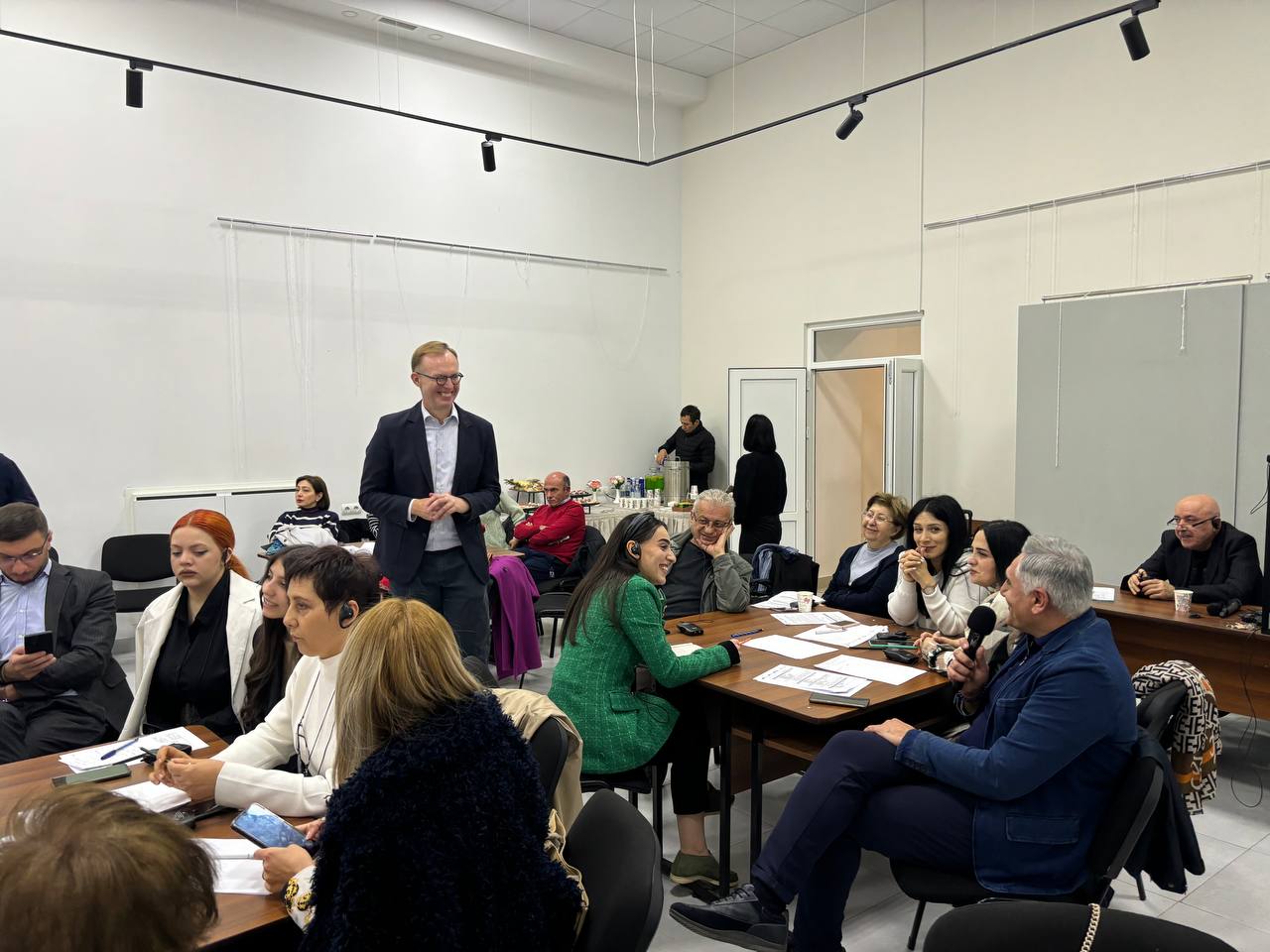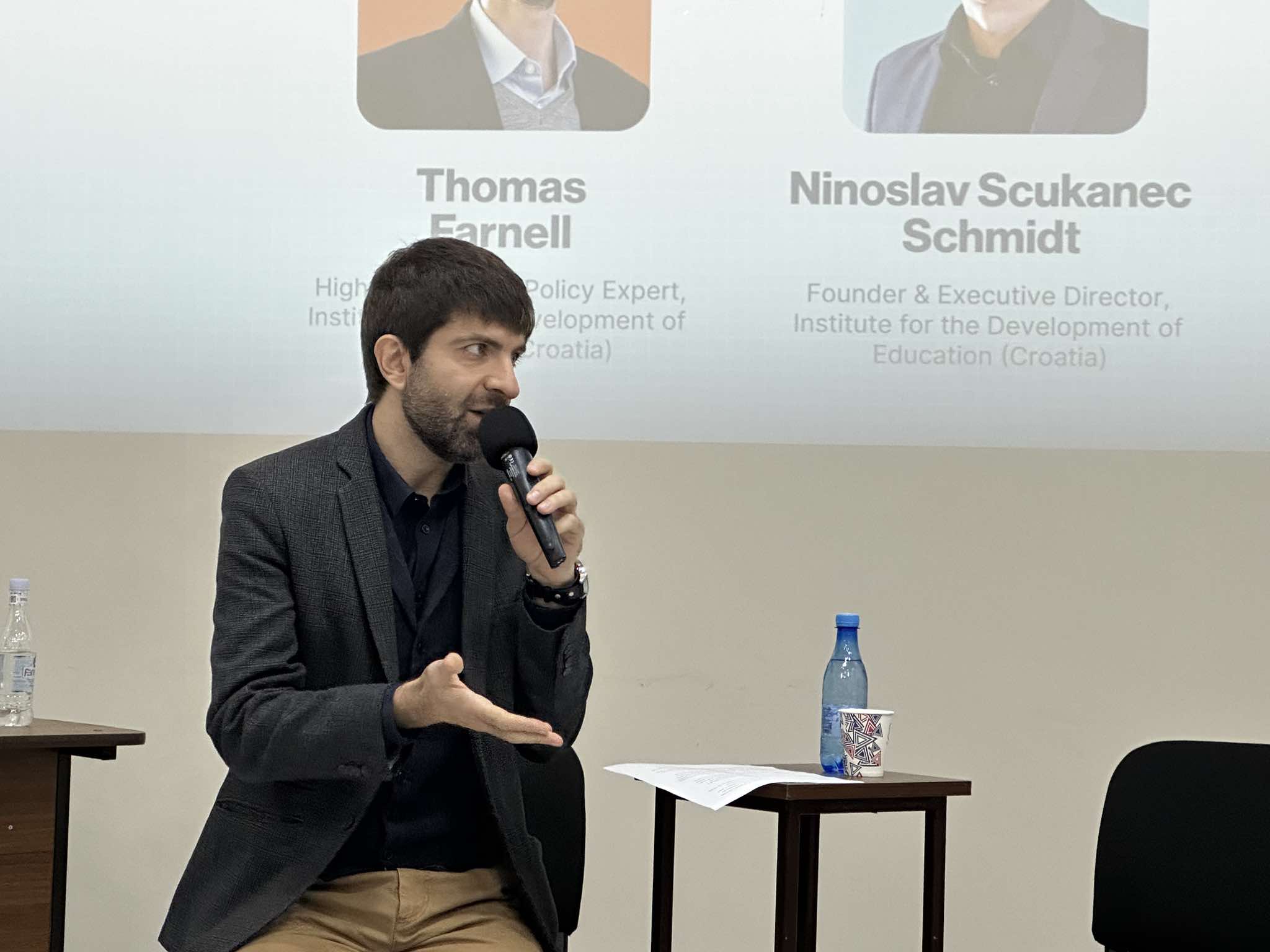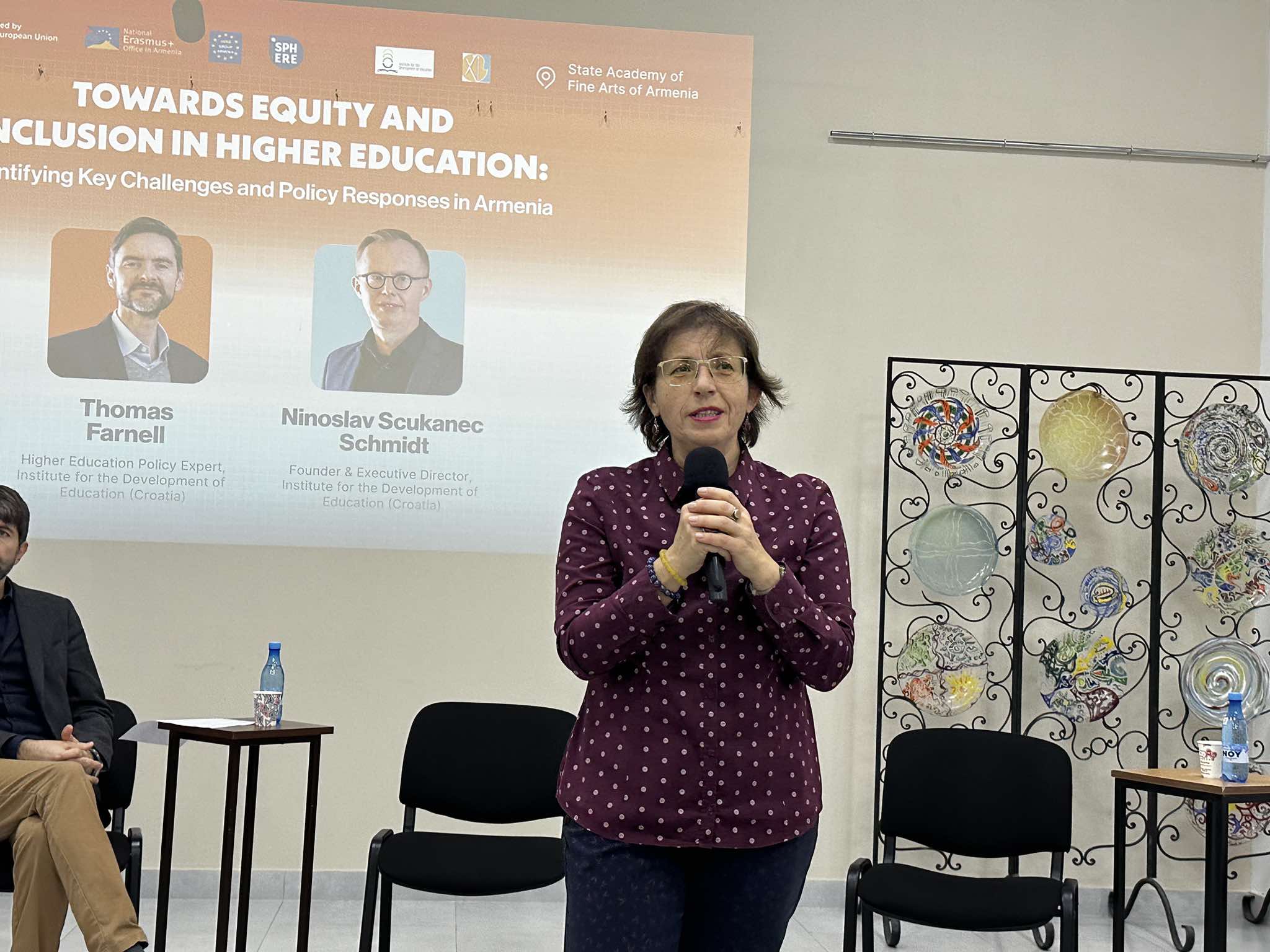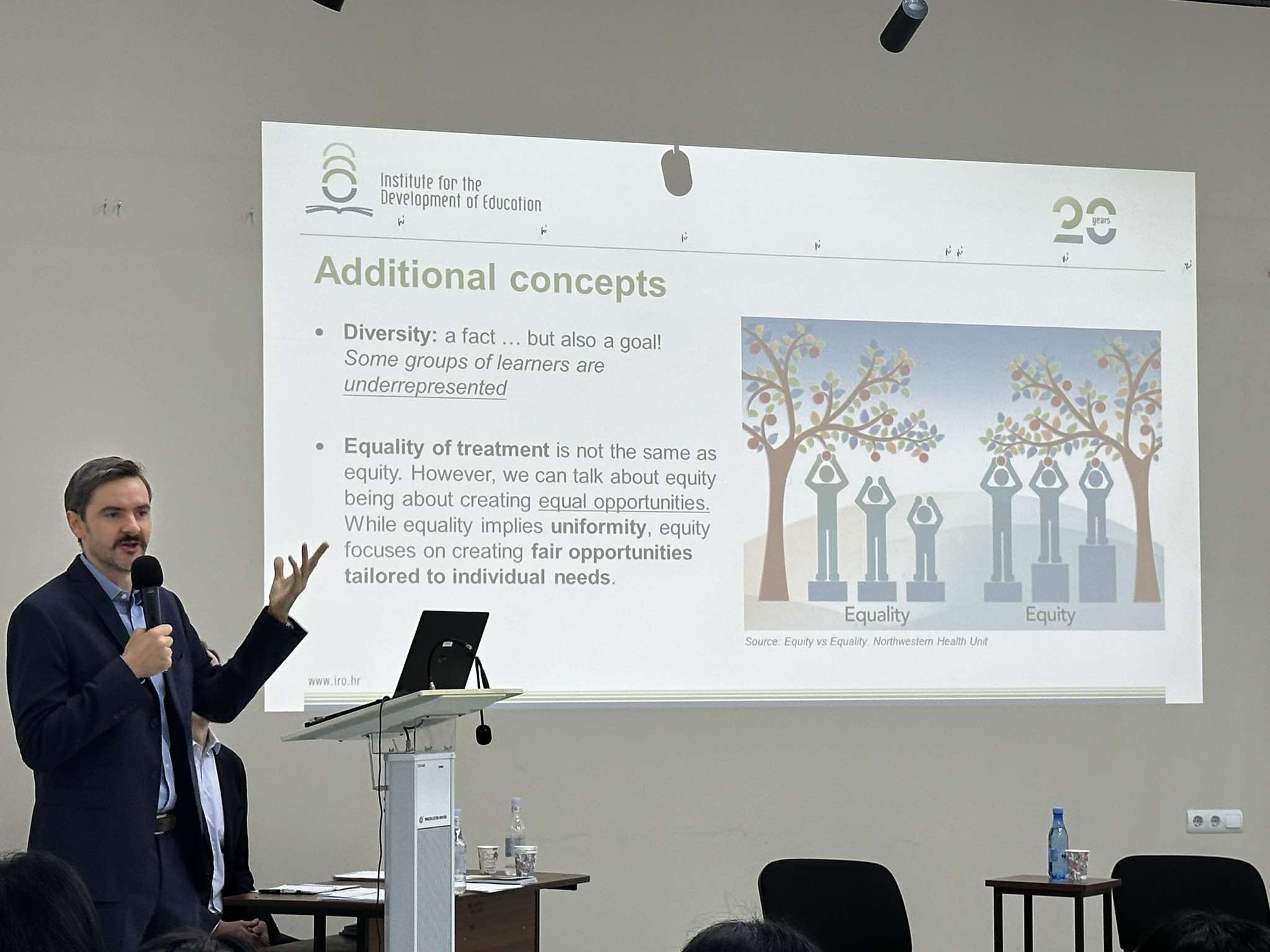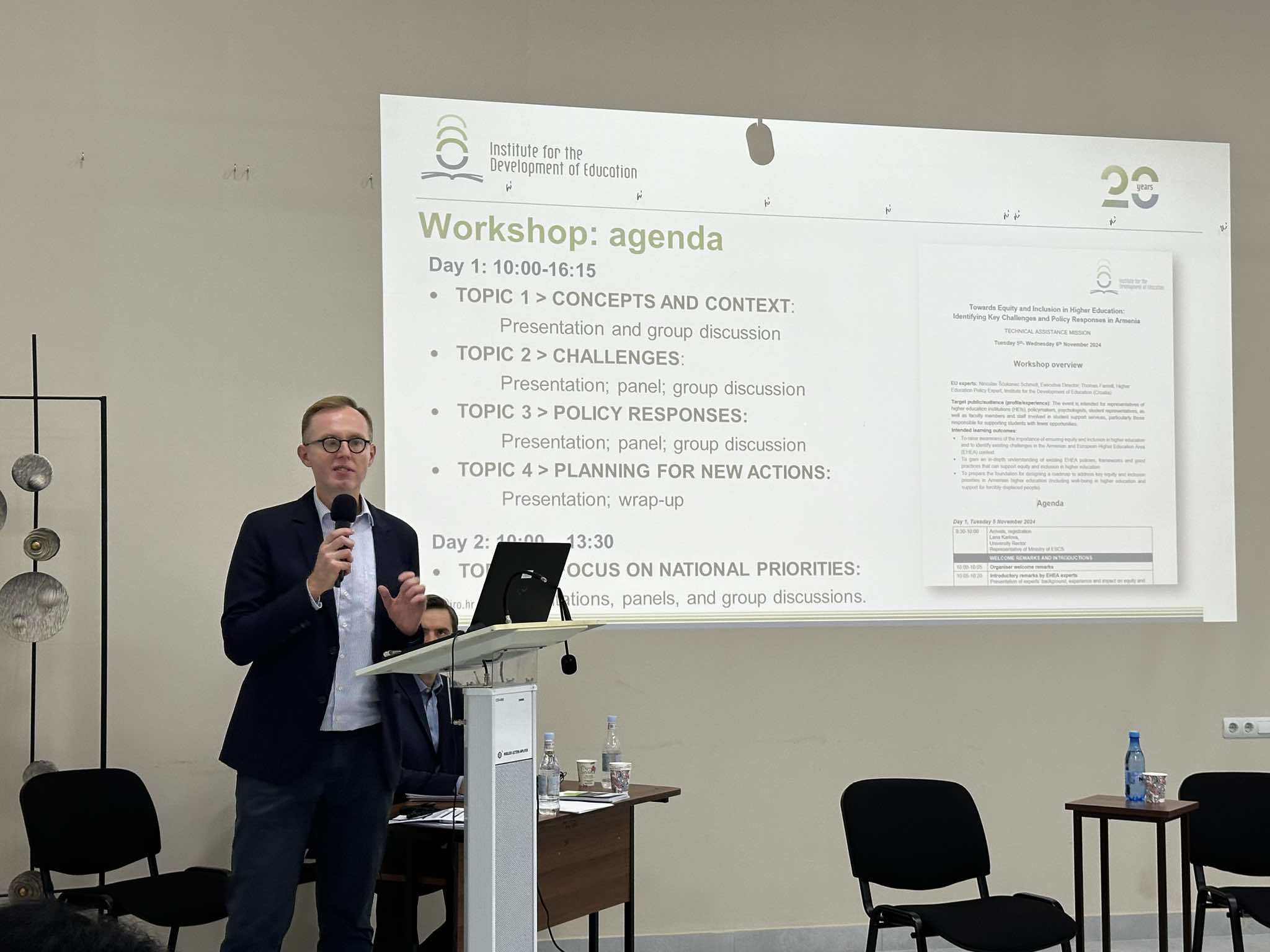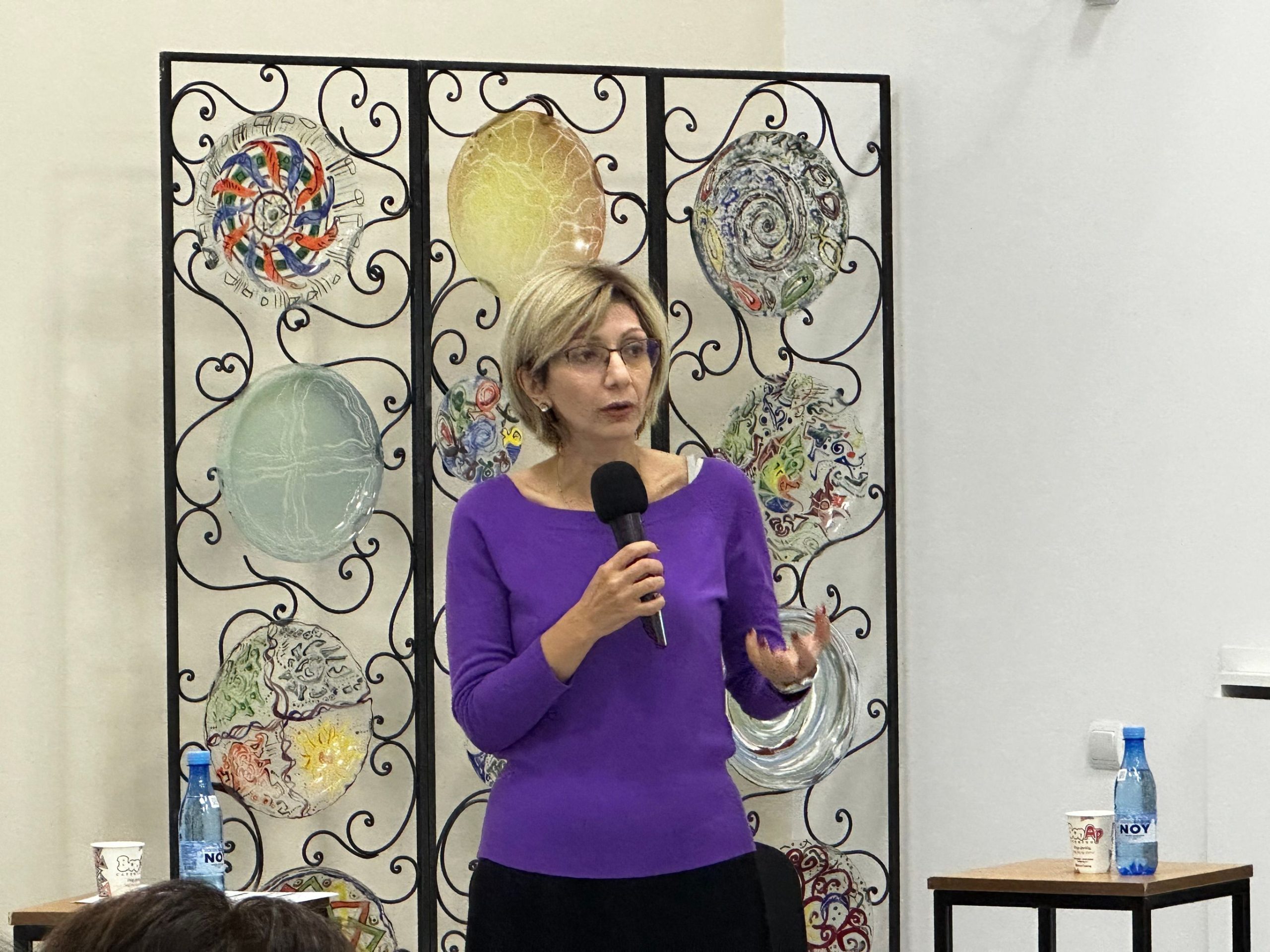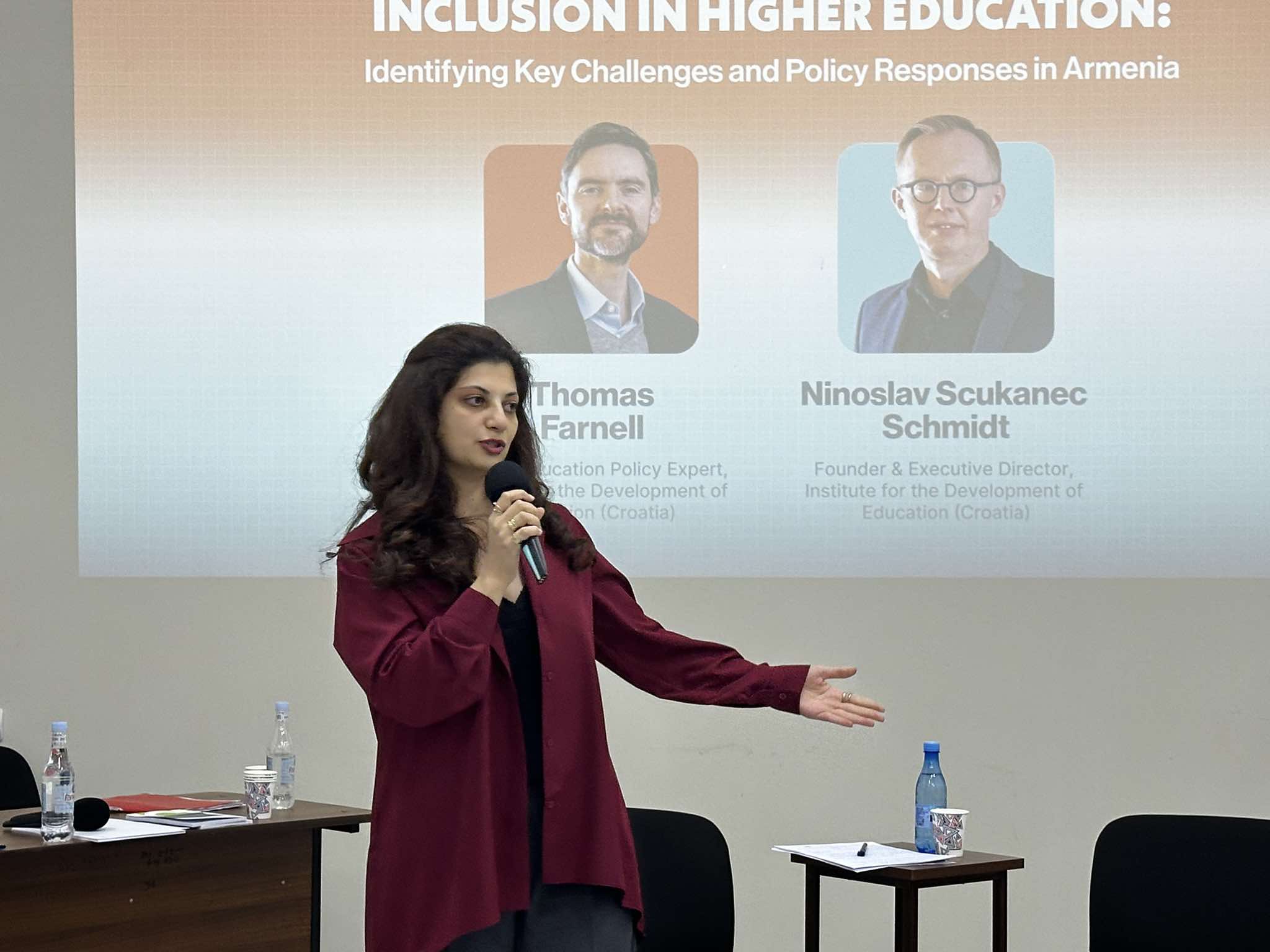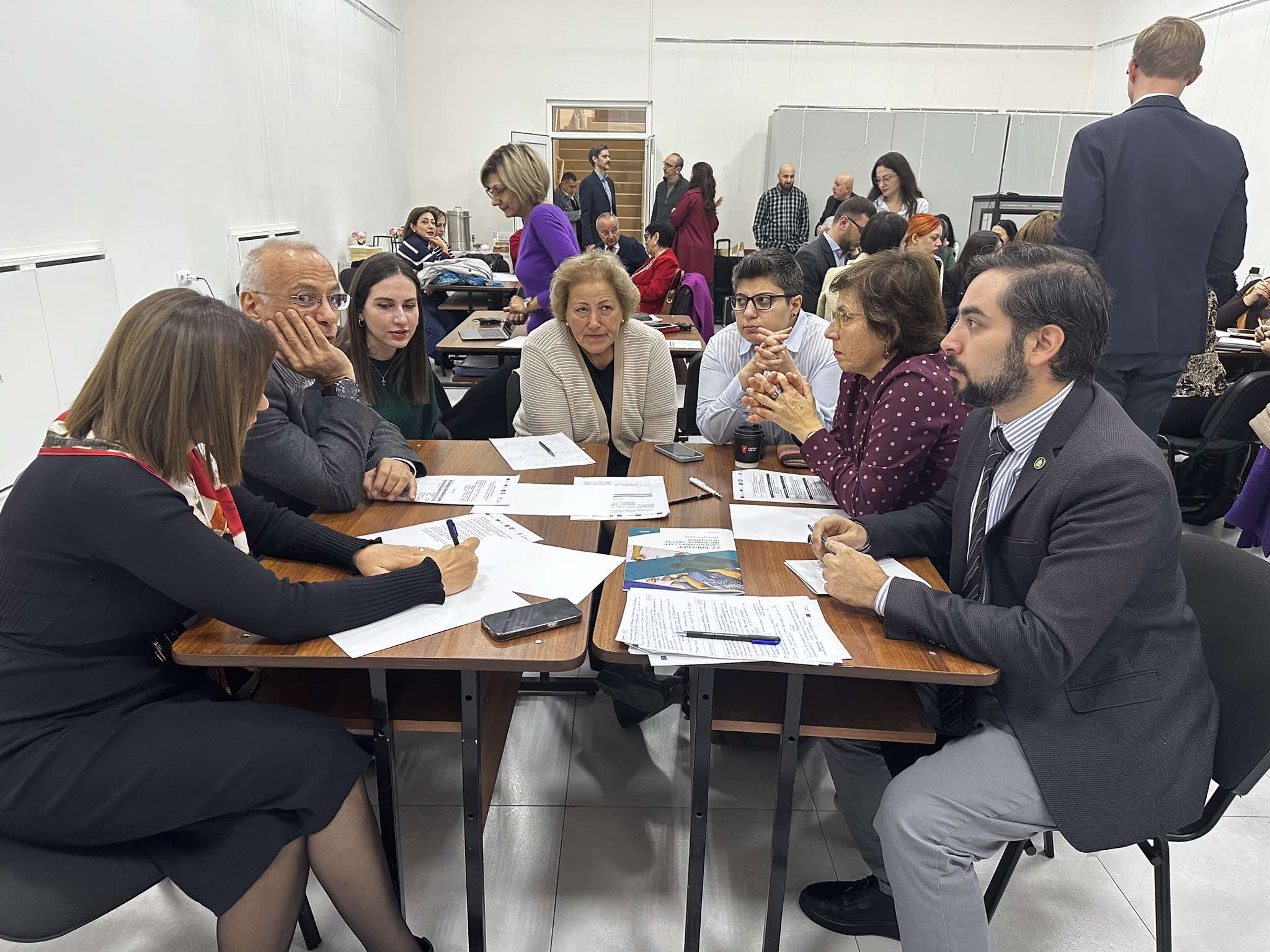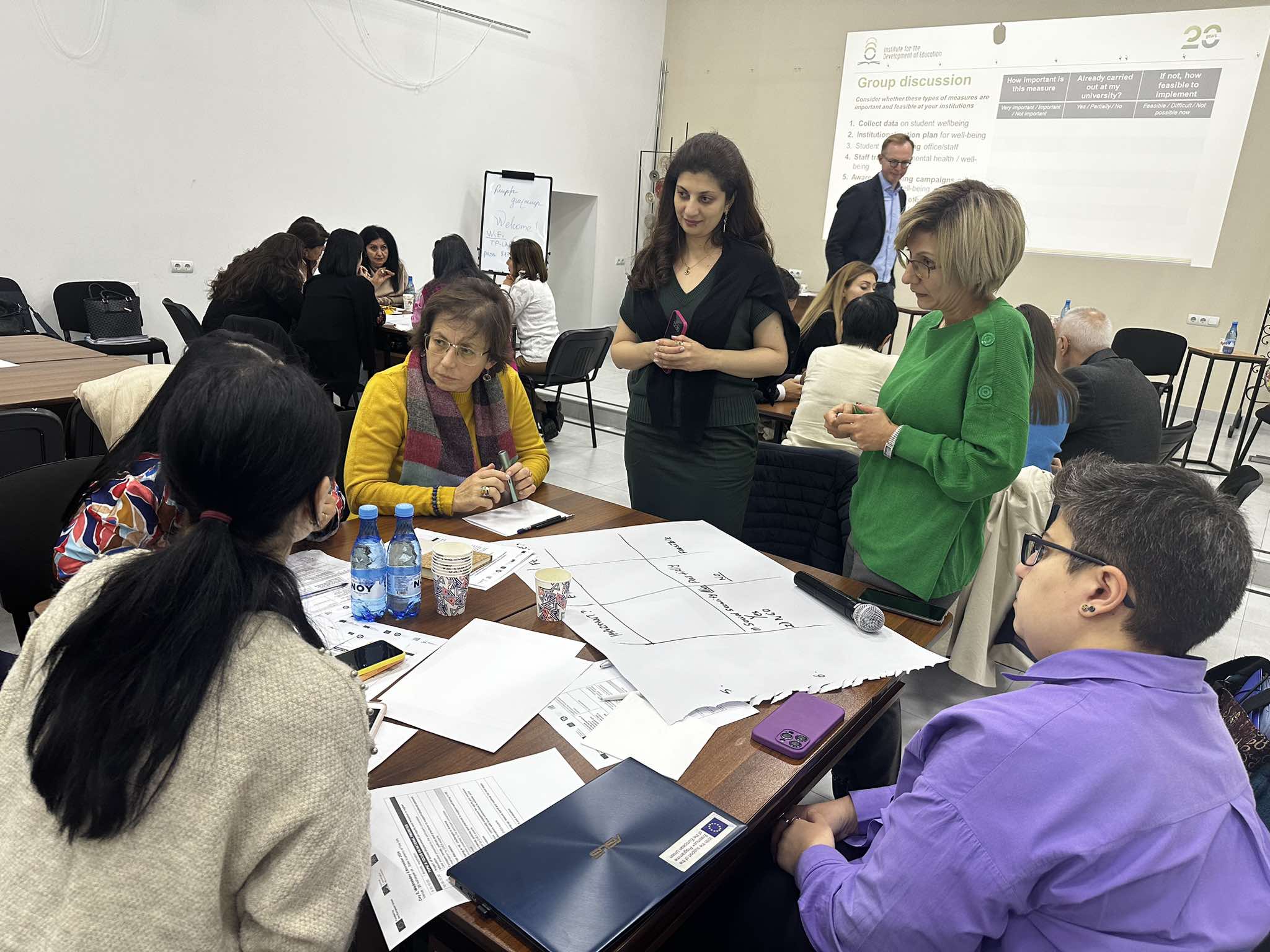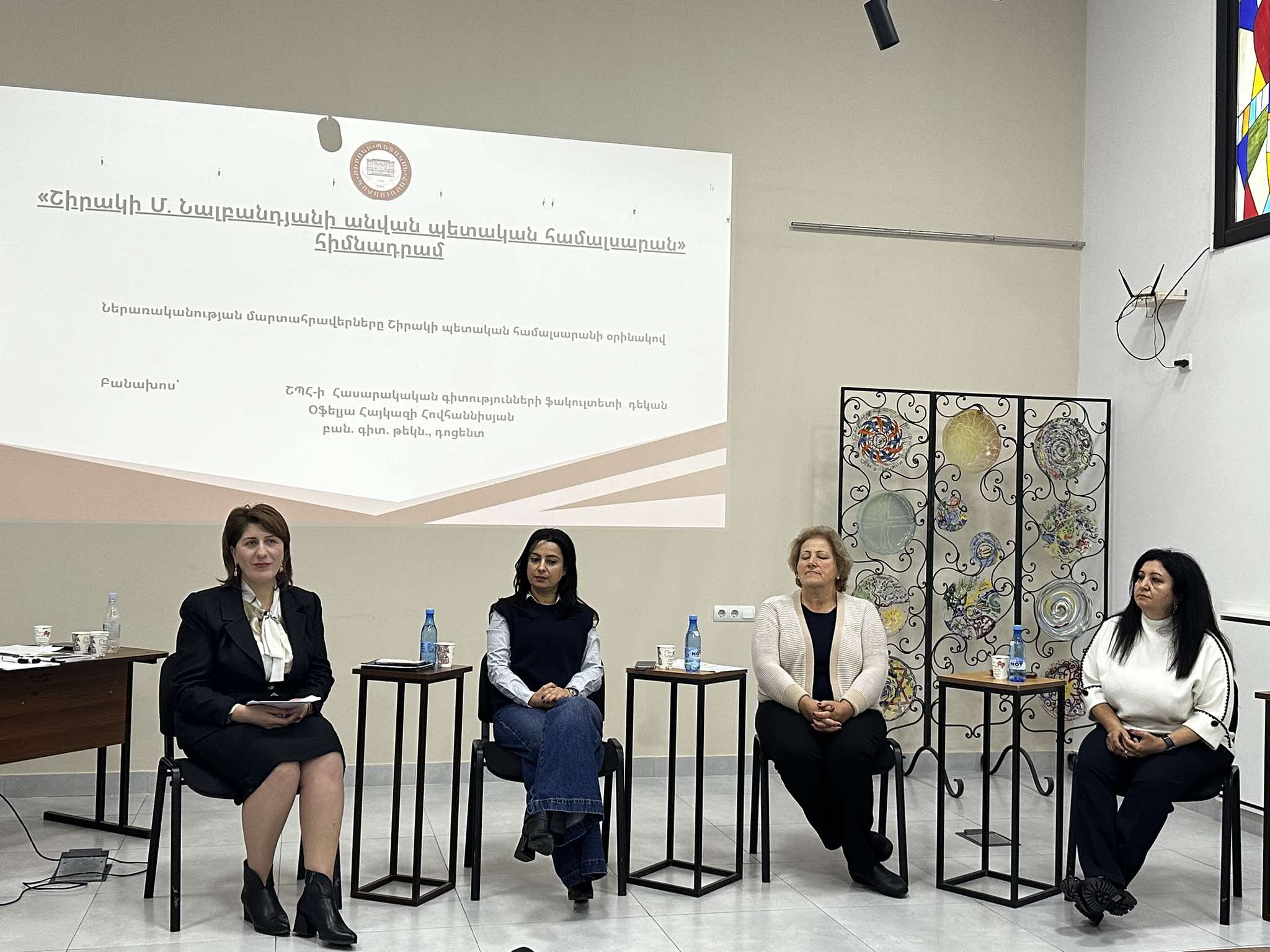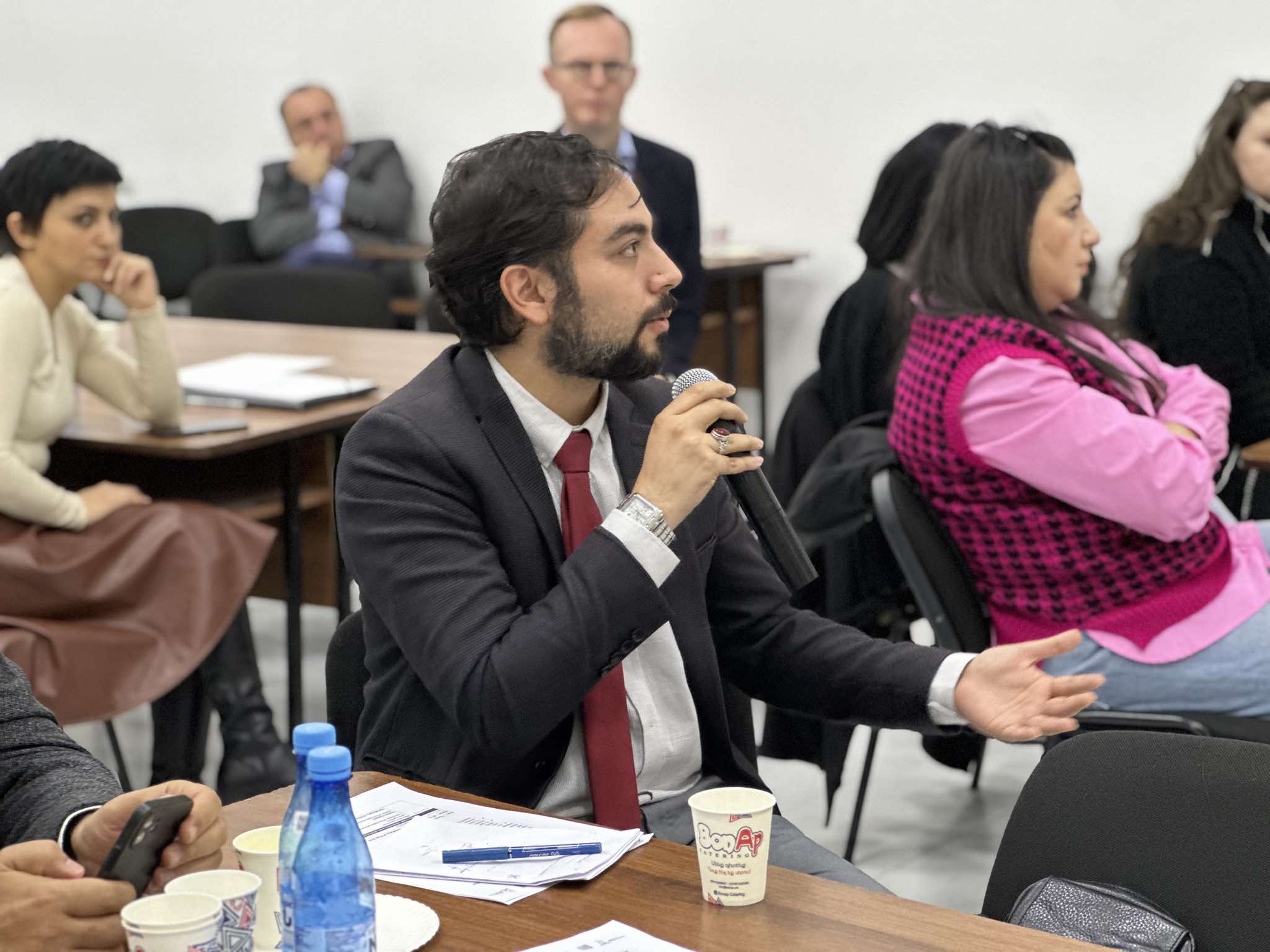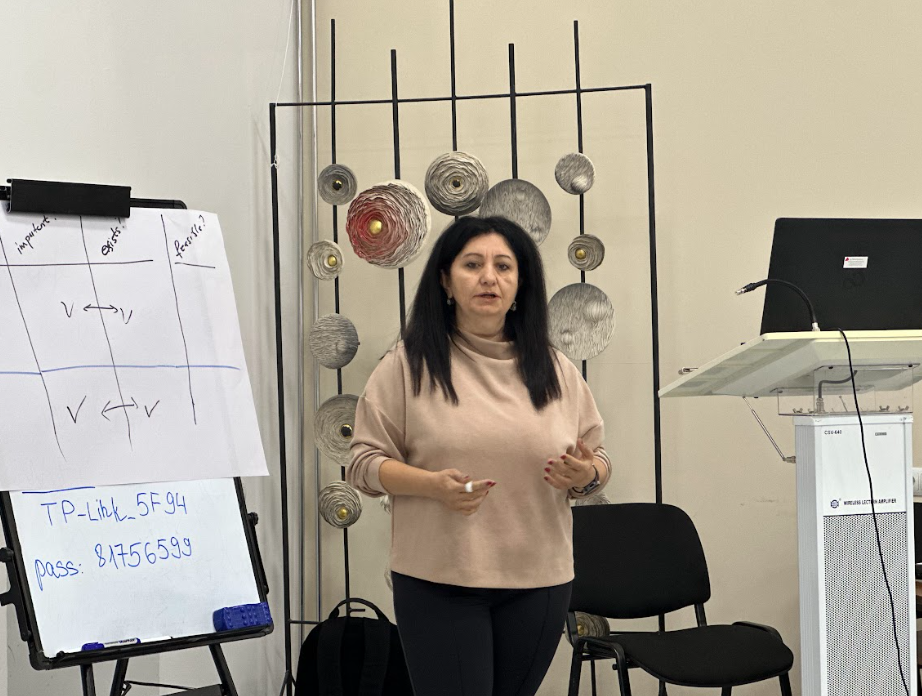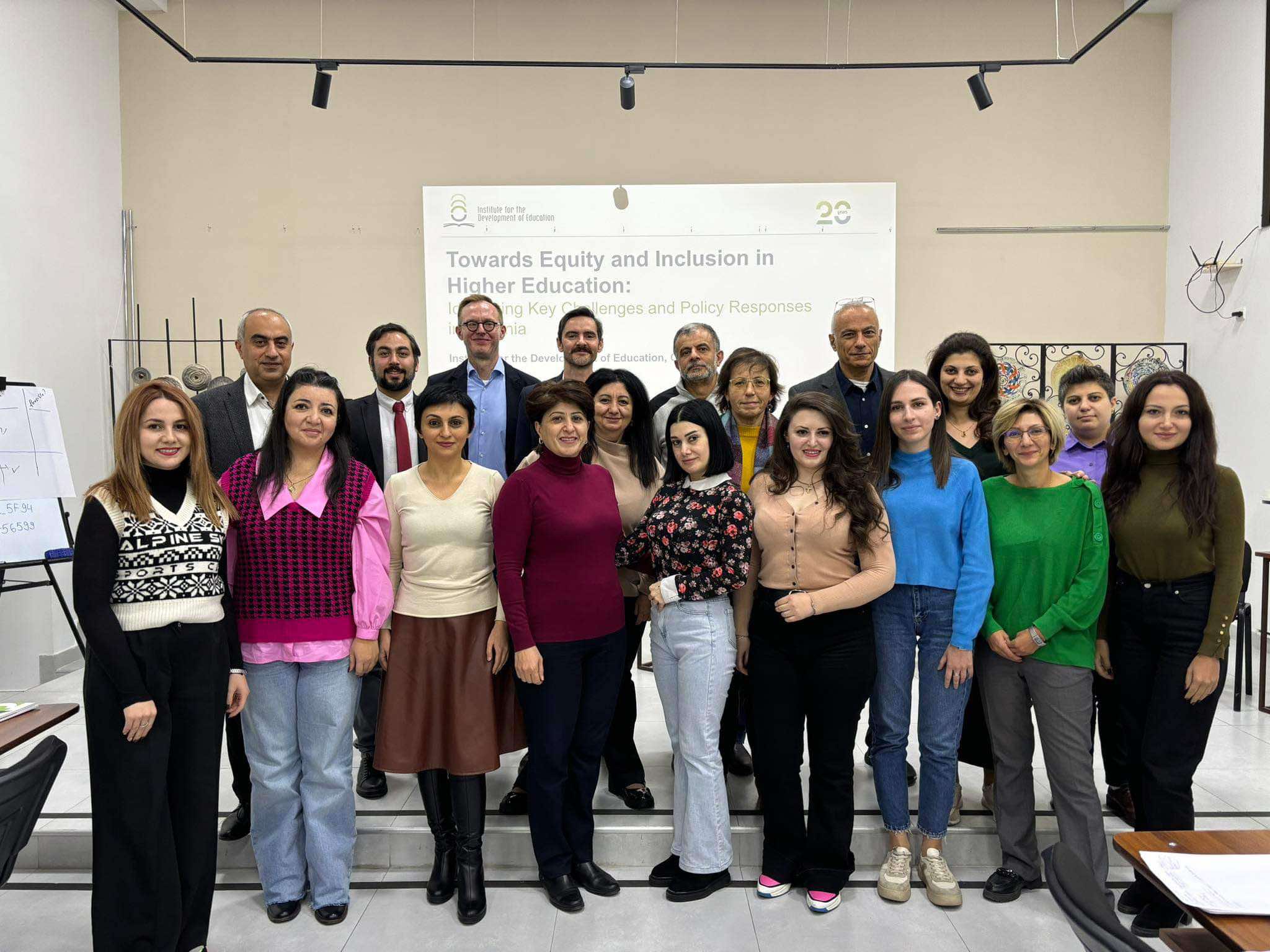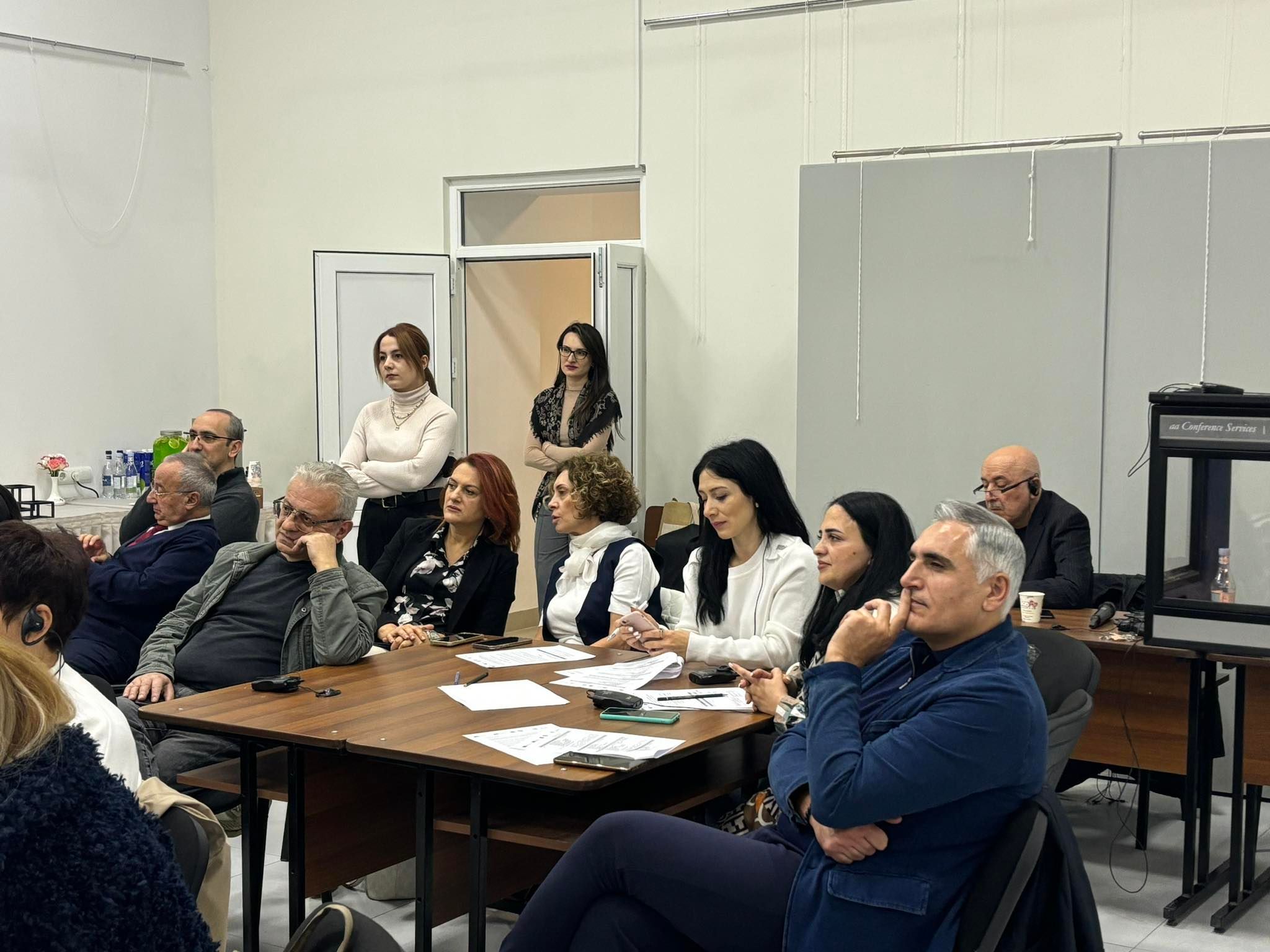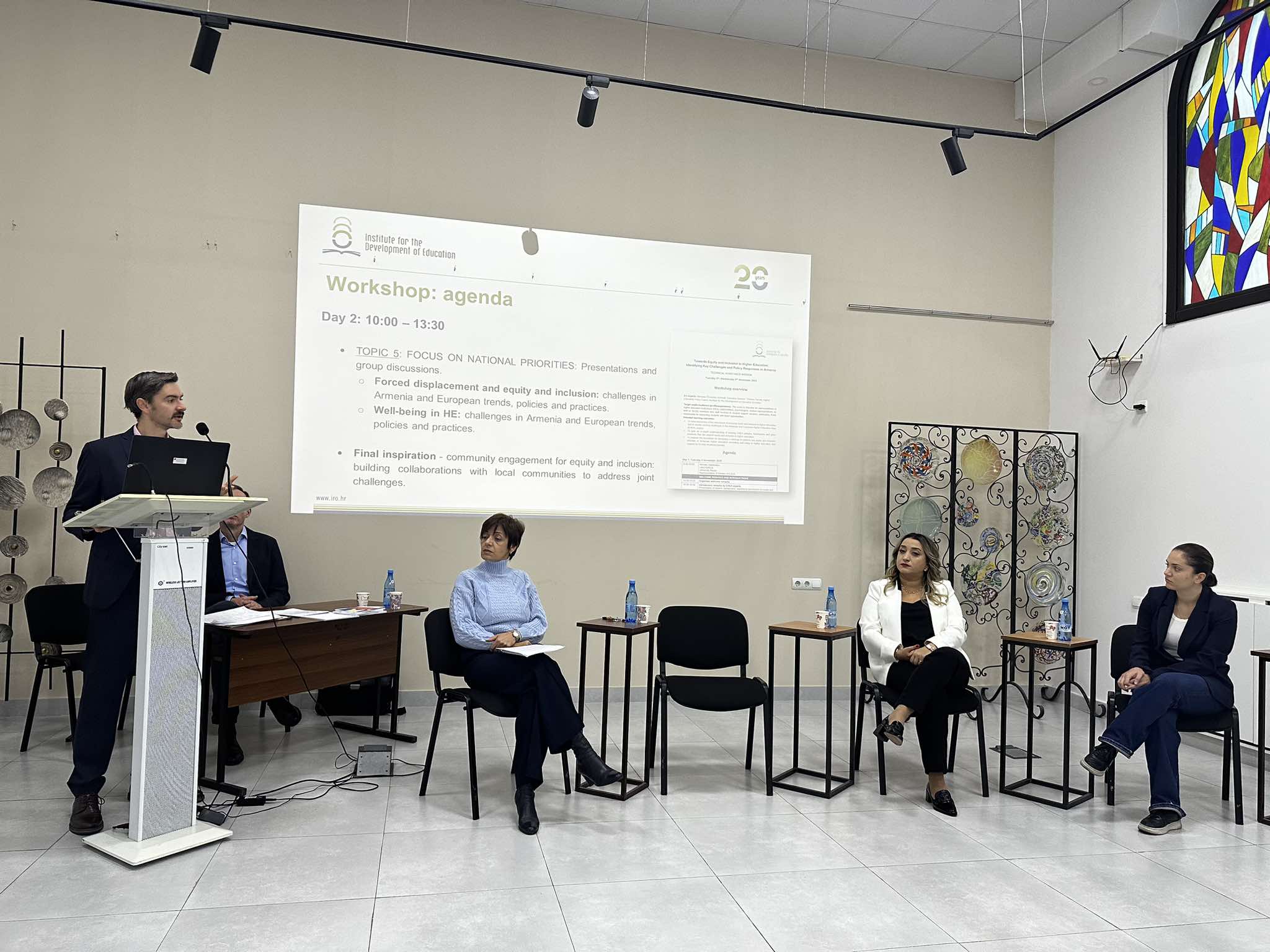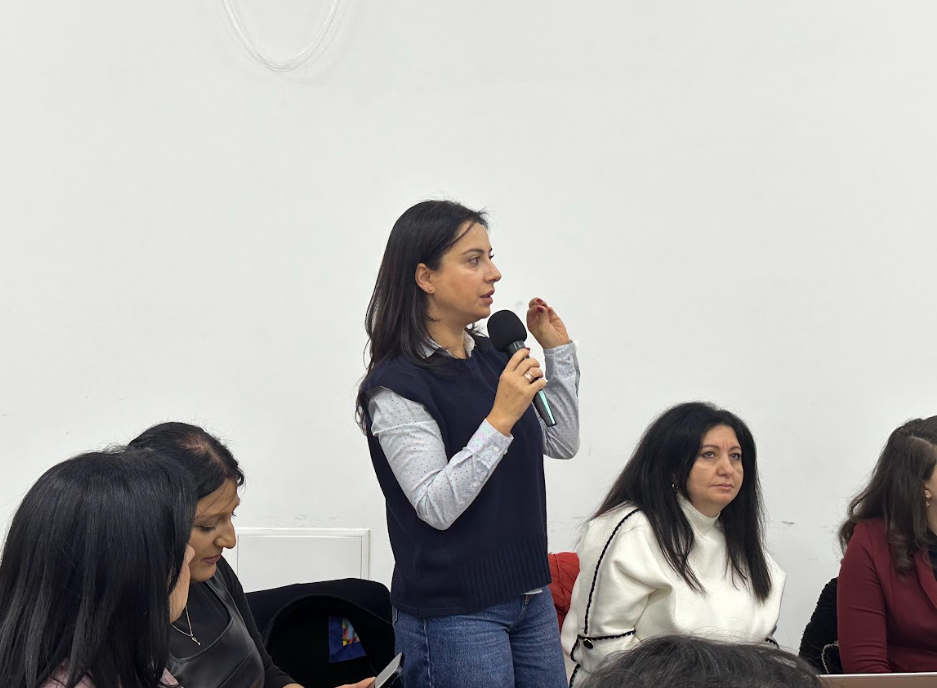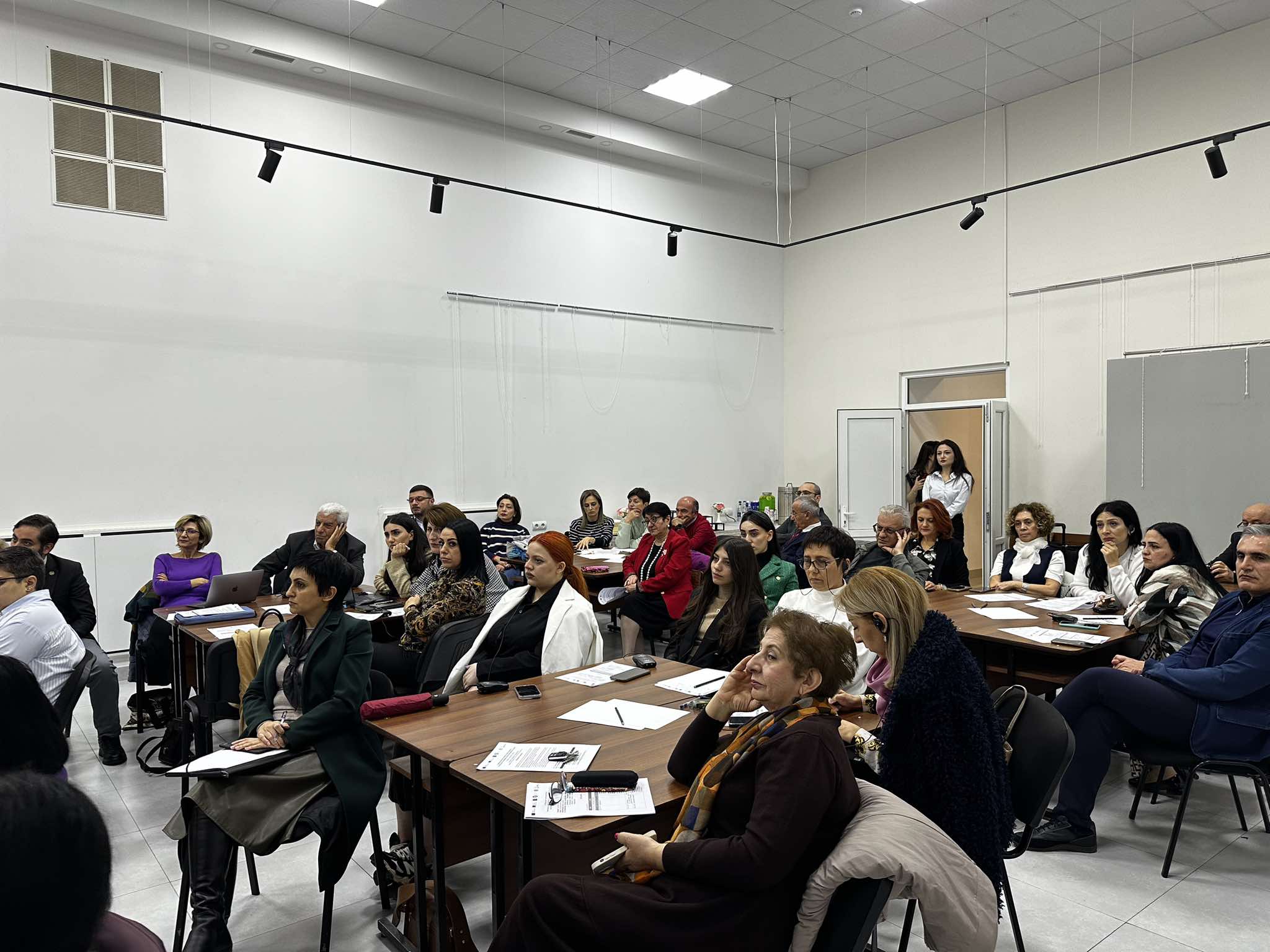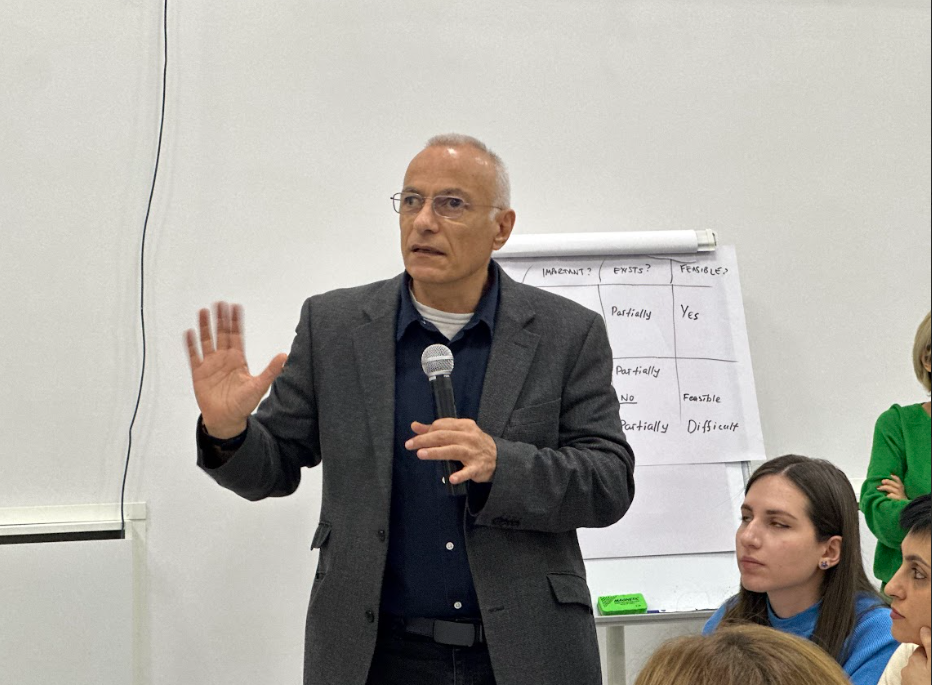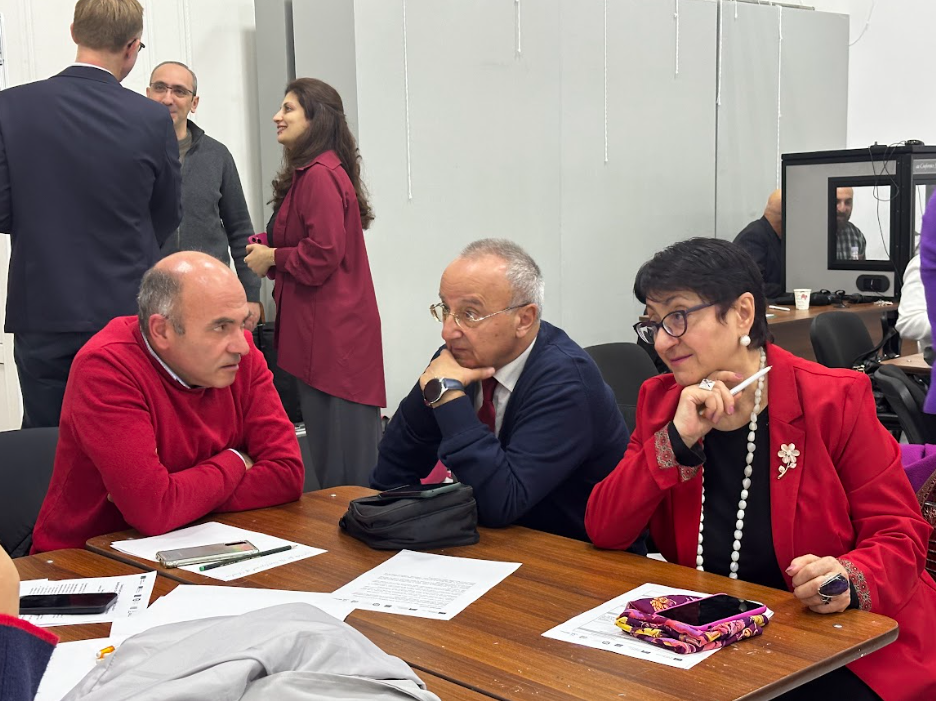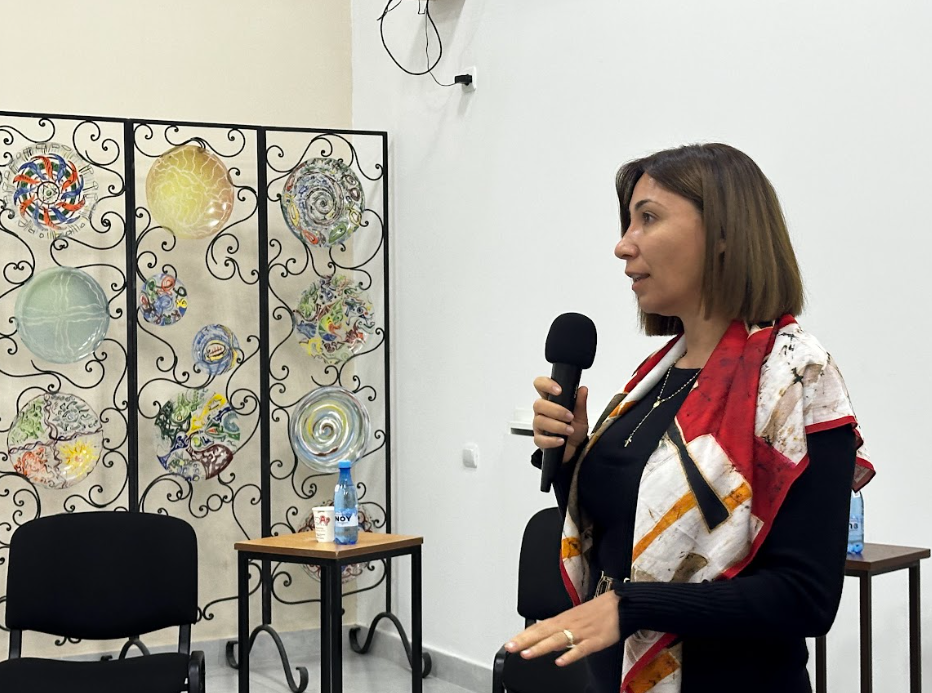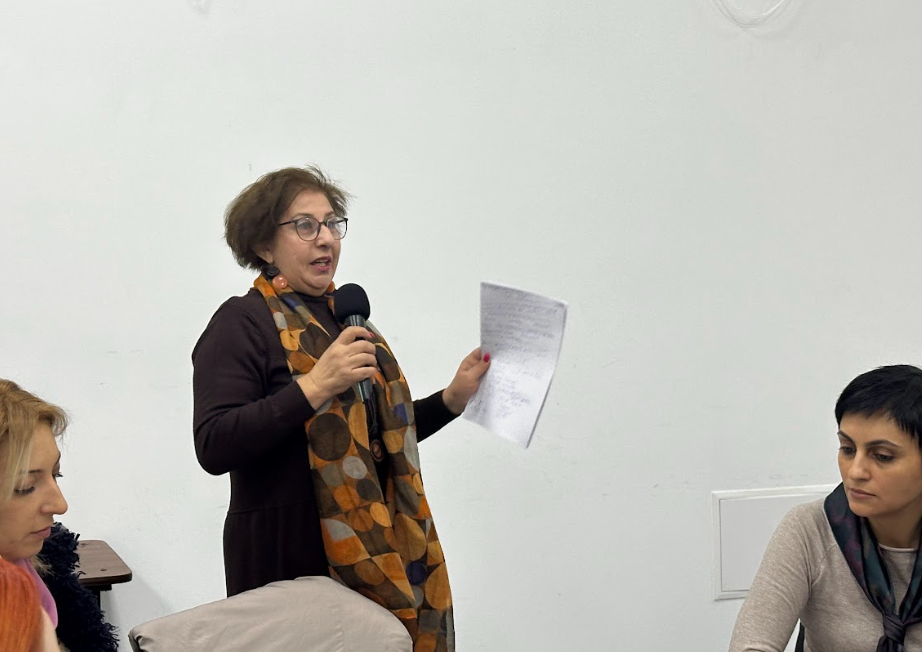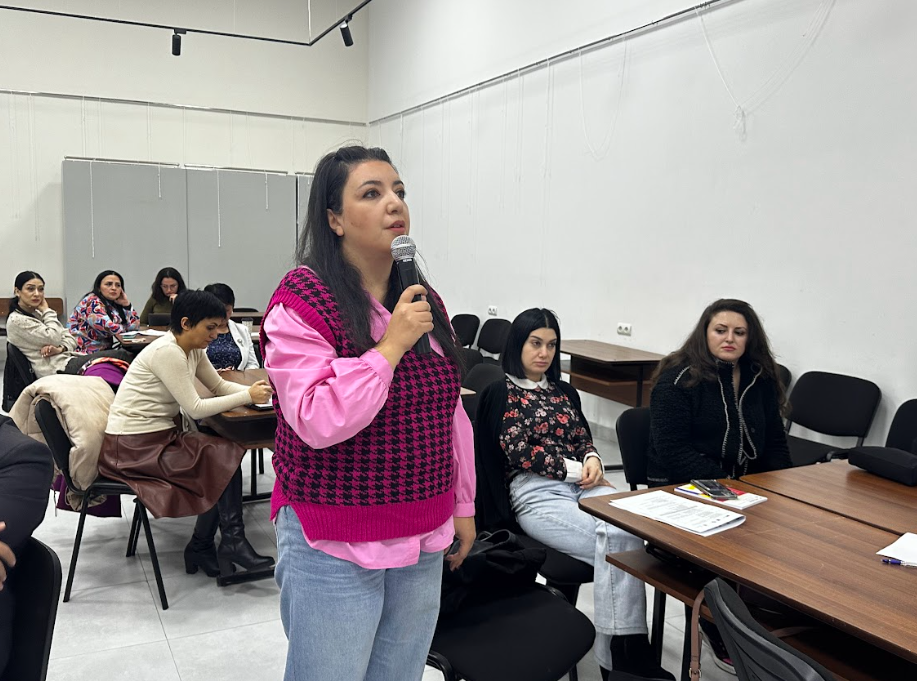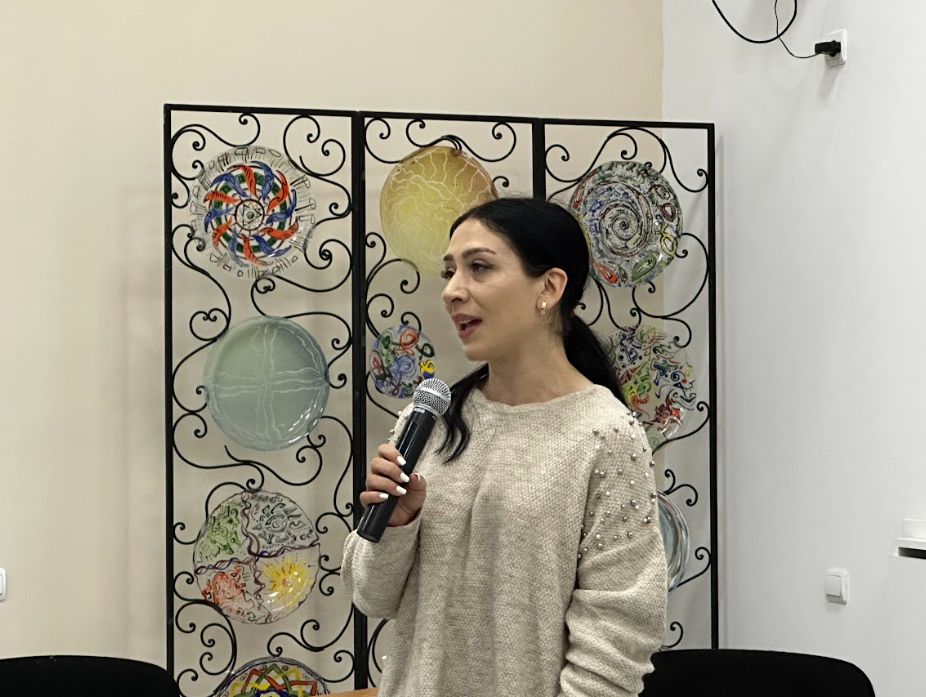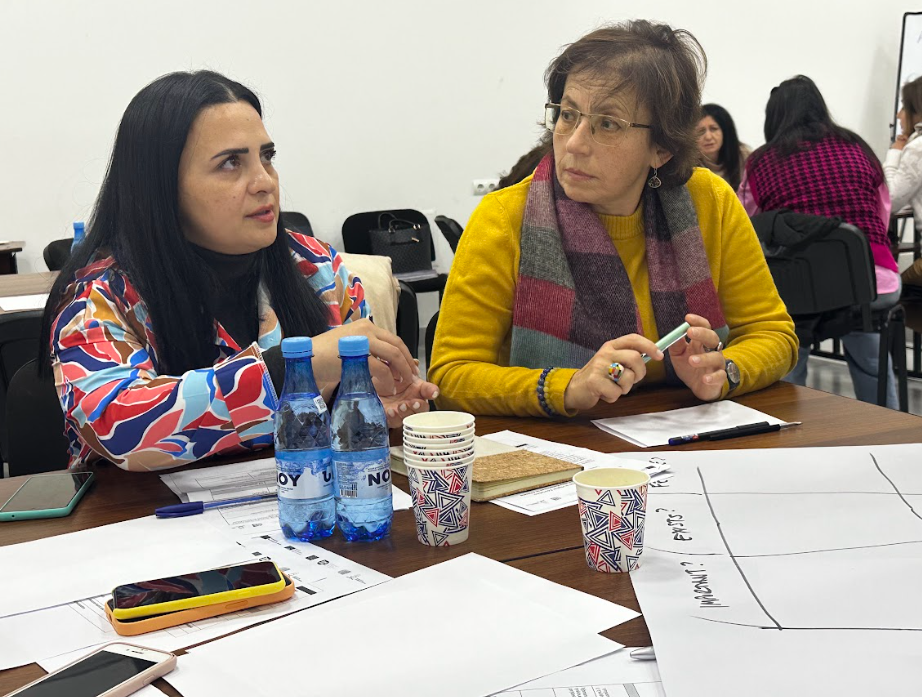Erasmus+ International Workshop on “Towards Equity and Inclusion in Higher Education: Identifying Key Challenges and Policy Responses in Armenia ”
On November 5-6, the State Academy of Fine Arts of Armenia hosted the Erasmus+ International Workshop titled ”Towards Equity and Inclusion in Higher Education: Identifying Key Challenges and Policy Responses in Armenia”. The event gathered representatives from Armenian higher education institutions, psychologists, and lecturers to discuss issues of accessibility in education and the importance of equality and inclusion in higher education.
The workshop aimed to highlight the importance of one of the horizontal priorities of Erasmus+ Programme – inclusion, and to educate and inform academic community on related issues and policies. The workshop was organized by the National Erasmus+ Office in Armenia in collaboration with Higher Education Reform Experts (HEREs) Ruzanna Minasyan (Head of Academic Programme Development Division at the State Academy of Fine Arts of Armenia) and Kristine Gevorgyan (Coordinator of the Master’s Programs at the Center for European Studies, Yerevan State University) as part of the Erasmus+ HERE technical assistance missions.
The speakers of the workshop were Ninoslav Šćukanec Smidt (biography), Executive Director of Croatia’s Institute for the Development of Education, and Thomas Farnell (biography), Higher Education Policy Expert at the same institute. Key topics covered included the significance of social justice in education, inclusion, strategies for supporting displaced students, and ensuring student well-being.
Over 50 participants attended the first day of the workshop, which was launched by Vardan Azatyan, Rector of the State Academy of Fine Arts of Armenia, and Lana Karlova, Coordinator of the National Erasmus+ Office in Armenia, who delivered welcoming speeches.
EU experts Ninoslav Šćukanec Smidt and Thomas Farnell presented concepts, key terms, and policies on equality, inclusion, diversity, and social standards in higher education within the context of the European Higher Education Area (EHEA), as well as the challenges and main factors leading to inequality within the EHEA.
During the group discussions, participants addressed local issues in Armenia: whether equality and inclusion are truly encouraged in Armenia’s higher education sector and society, and if there are priority issues requiring attention but remain unaddressed in discussions.
In the panel discussion titled “Equality and Inclusion Challenges in Armenian Higher Education” representatives from Armenian HEIs, including Marianna Harutyunyan (Armenian State Pedagogical University after Khachatur Abovyan), Lusine Fljyan (Northern University), Anahit Ordyan (American University of Armenia) and Ofelya Hovhannisyan (Shirak State University) shared their experiences on the challenges related to equality and inclusion within Armenia’s higher education institutions.
The EU experts introduced frameworks and tools within the EHEA that can support equality and inclusion in Armenian universities. They also shared experiences from Croatia, illustrating policies and national priorities that could potentially be adapted for Armenia.
On the second day, discussions focused on national priorities, including the impact of forced displacement on equality and inclusion in higher education. Experts Armine Haroyan (Armenian Educational Foundation), Nune Minasyan (State Academy of Fine Arts of Armenia), and Tatevik Karapetyan (Yerevan State University) shared their insights.
EU experts presented European trends, policies, and practices aimed at supporting displaced individuals and ensuring well-being within higher education, emphasizing community involvement as essential for promoting equality and inclusion. This was followed by an active group discussion in which participants assessed the applicability of the presented frameworks and practices in Armenia’s higher education sector, identifying which of these are most necessary and feasible within Armenia’s context.
Summing up the workshop, the EU experts highlighted the need for:
- A legal framework in Armenia that addresses issues related to document and qualification recognition for displaced students;
- Overcoming cultural and language barriers that hinder the integration of displaced individuals;
- Policy adjustments, such as allowing alternative evidence for qualification recognition, to foster a more inclusive higher education environment;
- Addressing mental health challenges faced by forcibly displaced individuals, emphasizing their importance in the integration process. They discussed the need for accessible psychological support services, which can help displaced individuals overcome past hardships and integrate more easily into academic and social life.
Participants highly appreciated the professional expertise of the EU experts, underscoring the importance and relevance of the issues discussed. The workshop’s outcomes are expected to guide strategic planning for promoting fairness and inclusion in higher education in Armenia, as well as the implementation of support programs in line with EHEA standards in Armenian HEIs.

